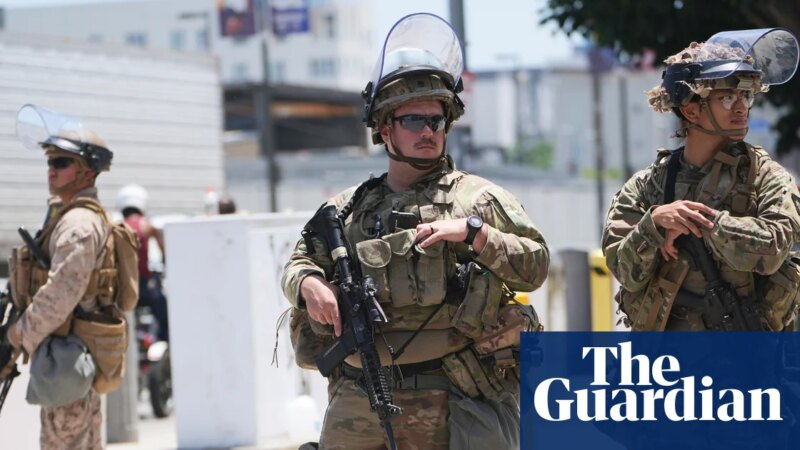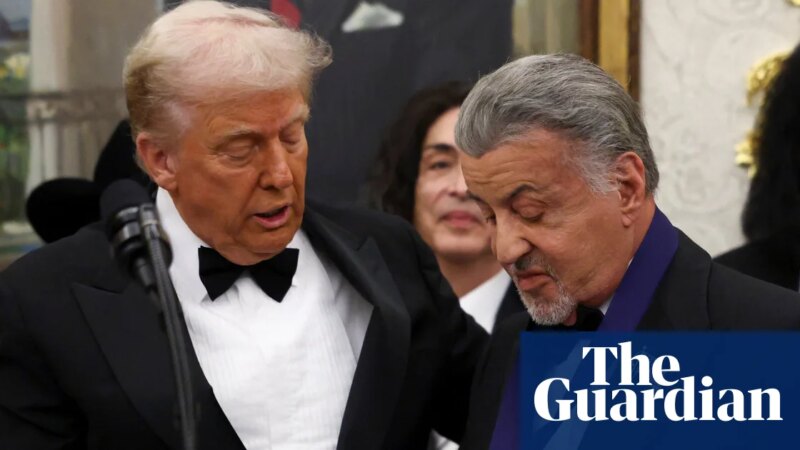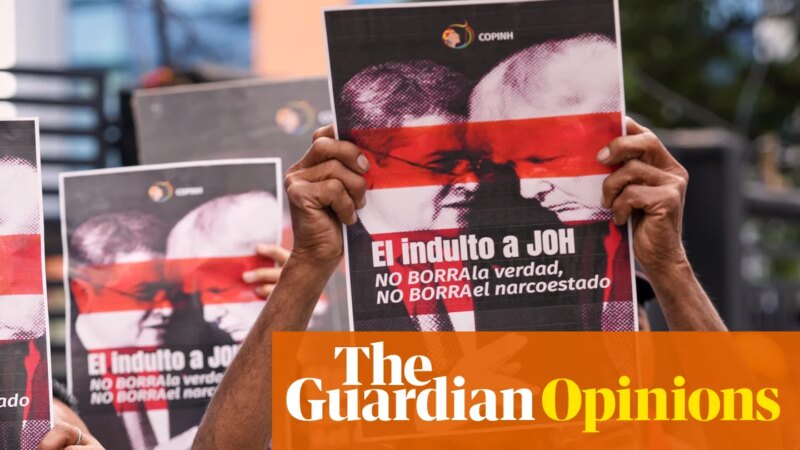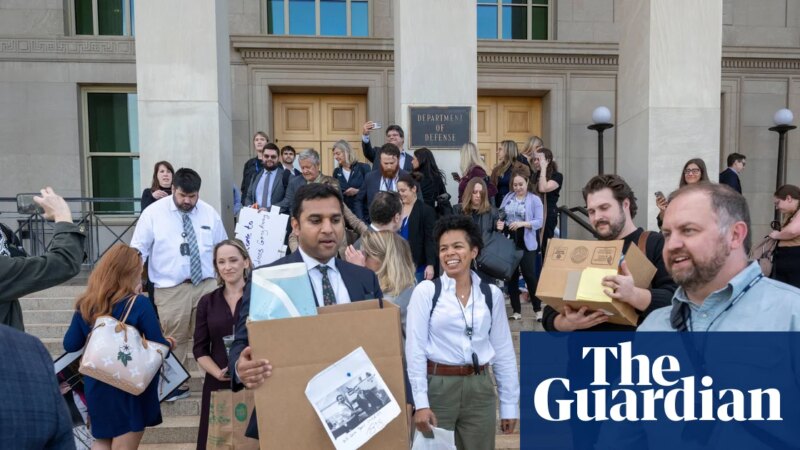Trump news at a glance: president endorses and threatens on eve of New York City mayoral election | Trump administration
Donald Trump has no qualms weighing in on local elections – especially in his native New York City.
And on the eve of the mayoral election between Democratic socialist Zohran Mamdani, longtime Democrat-turned-independent Andrew Cuomo and Republican Curtis Sliwa, the US president had a message for Republican New Yorkers.
“I would much rather see a Democrat, who has had a Record of Success, WIN, than a Communist with no experience and a Record of COMPLETE AND TOTAL FAILURE,” Trump wrote on Truth Social on Monday.
Before the uncanny endorsement, Trump also renewed threats to punish New Yorkers based on the election outcome, writing on his platform that it was “highly unlikely that I will be contributing Federal Funds, other than the very minimum as required” if Mamdani wins.
Later on Monday, Mamdani responded publicly to Trump’s remarks at a campaign event in Astoria, Queens.
“The Maga movement’s embrace of Andrew Cuomo is reflective of Donald Trump’s understanding that this would be the best mayor for him – not the best mayor for New York City, not the best mayor for New Yorkers, but the best mayor for Donald Trump and his administration,” he said, according to the New York Times.
Trump threatens to cut funds if Mamdani wins mayoral election
On the eve of New York’s well-watched mayoral election, Trump issued a threat to its voters: stop Zohran Mamdani or pay.
“If Communist Candidate Zohran Mamdani wins the Election for Mayor of New York City, it is highly unlikely that I will be contributing Federal Funds, other than the very minimum as required, to my beloved first home,” Trump said in a post on Truth Social. “I don’t want to send, as President, good money after bad.”
Trump urged NYC Republicans to vote for Cuomo, who has been a lifelong Democrat but ran in this year’s mayoral race as an independent to bypass the Democratic primary.
The Trump administration is well on its way toward making good on this threat even before the votes have been counted. The White House began sparring with the state over New York’s plan to enforce congestion pricing for car traffic earlier this year, which Trump revisited in a separate Truth Social post on Monday evening. The White House withheld $18bn for a tunnel project as the government shutdown started. A federal judge ordered the federal government to reverse the rescission about $34m in counterterrorism funding for the New York City, ruling the move as “arbitrary, capricious and a blatant violation of the law”.
Trump administration to halve usual funds to Snap recipients this month
Amid mounting uncertainty among the nearly 42 million people on the Supplemental Nutrition Assistance Program (Snap), the Department of Agriculture said it would use contingency funds to keep benefits going, albeit just 50% of the usual funds recipients receive on their cards.
The announcement, in a court filing by the government at the US district court in Rhode Island, came after Donald Trump said the administration would comply with a court order to provide emergency funding after previous refusals to do so on purported legal grounds.
Federal judge bars national guard troops in Portland, Oregon
A federal judge in Oregon on Sunday said she “found no credible evidence” that protests in the city grew out of control before the president federalized the troops earlier this fall.
US district court judge Karin Immergut, a Trump appointee, barred the administration from deploying the national guard to Portland, Oregon, until at least Friday.
It is the latest development in weeks of legal back-and-forth in Portland, Chicago and other US cities as the Trump administration has moved to federalize and deploy the national guard in city streets to quell protests.
Americans ‘dumbfounded by cruelty’ of Trump officials slashing Snap benefits
The Guardian wanted to know how important Snap was to the approximately 42 million people enrolled in the program. Many of those who responded to our callout were elderly, or out of the workforce because of significant mental of physical health issues, and worried that a cutoff of the benefit would send their lives into a tailspin.
Steven of Wisconsin, 59, said he is recovering from surgeries, and has been unable to work for the past year because of his health. “I’ve already reduced my intake since before Snap was cut. Now it means no milk, no eggs, no vegetables, and definitely no meat,” he said, adding:
“It’s like the siege of Stalingrad, but from your own government.”
CBS News heavily edits Trump 60 Minutes interview, but the transcript reveals all
Trump sat down with correspondent Norah O’Donnell for 90 minutes, but only about 28 minutes were broadcast. A full transcript of the interview was later published, along with a 73-minute-long extended version online.
During the interview, in a clip that did not air on the broadcast, Trump needled CBS over the settlement and repeated his claims against the network.
“Actually, 60 Minutes paid me a lotta money. And you don’t have to put this on, because I don’t wanna embarrass you, and I’m sure you’re not,” Trump said.
Trump says he doesn’t know who crypto tycoon is, despite pardoning him
The president was asked in that 60 Minutes interview why he pardoned Changpeng Zhao, the billionaire founder of cryptocurrency exchange Binance, for enabling money laundering despite him causing “significant harm to … national security” according to federal prosecutors.
“OK, are you ready? I don’t know who he is,” Trump told CBS News’s Norah O’Donnell.
In 2023, Zhao pleaded guilty to charges that he broke rules designed to stop money laundering – after Binance allegedly failed to report suspicious transactions with organizations including Hamas and al-Qaida.
What else happened today:
-
Why is Donald Trump threatening military intervention in Nigeria? The president’s remarks about alleged persecution of Christians is seemingly in response to pressure from his evangelical base.
-
Trump said he feels “very badly” for the British royal family after King Charles stripped his brother, Andrew, of his titles over the former prince’s relationship with Jeffrey Epstein, the late, convicted sex offender.
-
Throwing a sandwich at a federal agent turned Sean Charles Dunn into a symbol of resistance against Trump’s law-enforcement surge in the country’s capital. This week, federal prosecutors are trying to persuade a jury of fellow Washington DC residents that Dunn simply broke the law.
-
The head of the US Food and Drug Administration’s drug center abruptly resigned on Sunday after federal officials began reviewing “serious concerns about his personal conduct”, according to a government spokesperson.
-
The collective wealth of the top 10 US billionaires has soared by $698bn in the past year, according to a new report from Oxfam America published on Monday on the growing wealth divide.
Catching up? Here’s what happened on 2 November.





